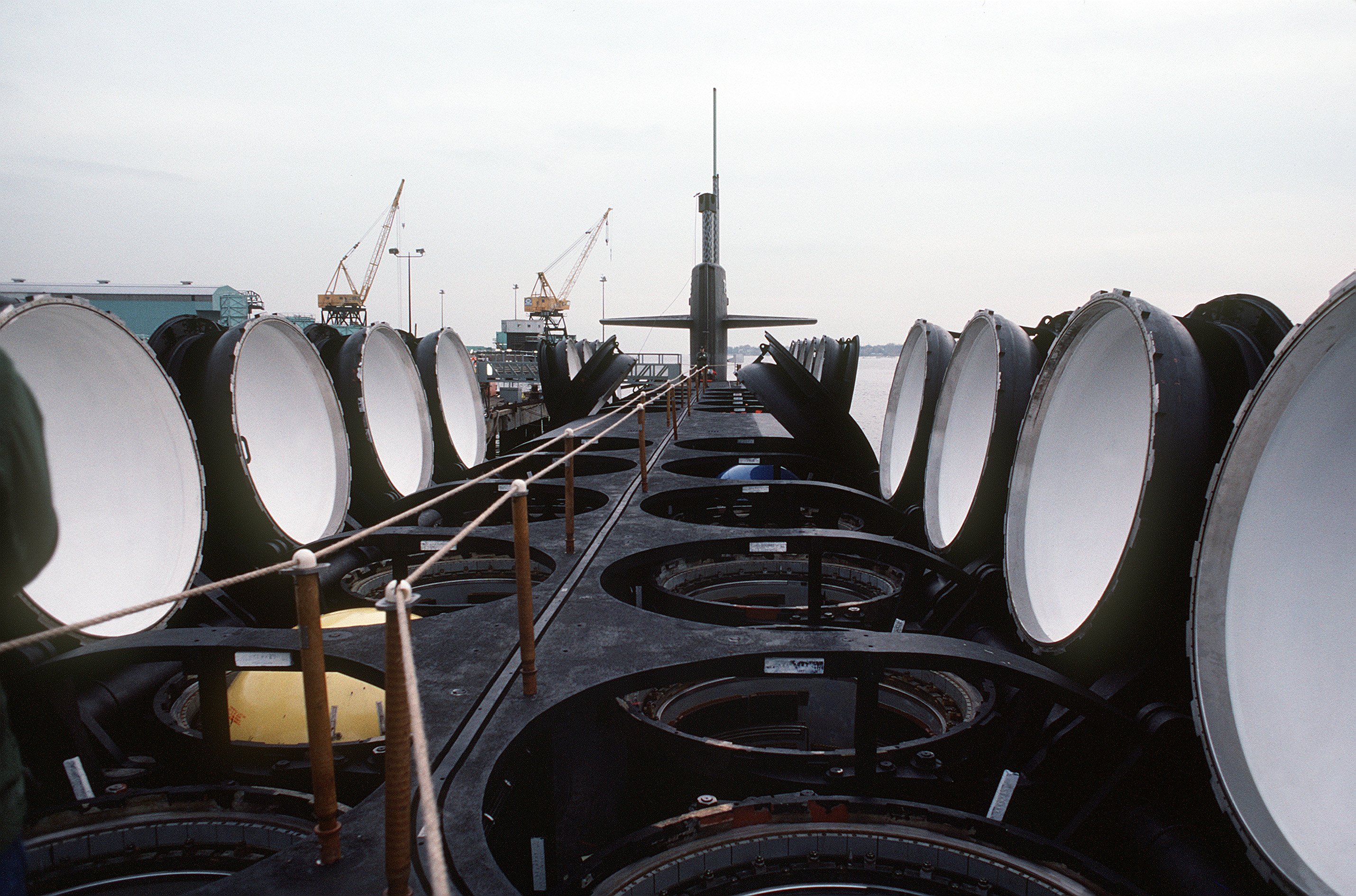
The question of whether to authorize the Navy to deploy ballistic submarines with low-yield nuclear warheads caused a House Armed Services subcommittee to approve its Fiscal Year 2020 National Defense Authorize Act mark on a rare party-line vote.
The Democratic majority on the strategic forces subcommittee included language in its FY 2020 NDAA markup prohibiting the Navy from deploying low-yield atomic weapons on submarines, setting up a likely policy fight when members of the House and Senate seek to iron-out differences between their versions of the FY 2020 NDAA later this year.
“Regarding low-yield, the last sixty years of nuclear deterrence strategy was based, in part, on the U.S. strategic nuclear submarine force, the most survivable leg of the triad, never being used as a tactical nuclear platform,” Rep. Jim Cooper, (D-Tenn.), chair of the subcommittee said Tuesday during the markup hearing. “I hope that members realize that adding a small number low-yield weapons to our submarines will actually decrease, not increase, our strategic power by subtracting priceless missile tubes and by risking exposure of our submarines to attack. Members know that I am not arguing against low-yield weapons themselves. We already have a large number of low-yield nuclear weapons available and hundreds deployed, but for our air assets, not our submarines.”
However, the Republican-led Senate has supported allowing the Navy to deploy with low-yield nukes on submarines. The Senate’s version of the FY 2020 NDAA will likely again include such an authorization. The President’s FY 2020 budget request also asks for money to develop submarine-launched low-yield nuclear weapons.
Deploying low-yield nuclear weapons on submarines has support on Capitol Hill from lawmakers worried Russia is already developing such weapons. Rep. Mike Turner (R-Ohio), the strategic forces subcommittee ranking member, said during the hearing that not allowing the Pentagon to develop low-yield nukes will, “place us at a significant disadvantage with regard to Russia by prohibiting funds for the deployment of a low-yield ballistic missile warhead.”
An amendment to the House mark, introduced by Rep. Liz Cheney, (R-Wyo.) would have authorized putting low-yield nukes on subs, but the measure failed to pass on a party-line vote. After Cheney’s amendment failed to pass, the subcommittee’s eight Republican members voted against the mark.
The bulk of the House Armed Services subcommittee marks considered Tuesday enjoyed bipartisan support and were forwarded for consideration by the full committee without controversy. In some cases, HASC priorities differ from the Pentagon’s budget request.
Language prohibiting the Department of Defense from cutting 18,000 military medical billets received support from both sides of the aisle. During a background briefing with the media, a committee staff member explained lawmakers did not believe the Pentagon either adequately justified the reduction or explained what having fewer medical providers would do to the readiness of the force.
The Navy’s FY 2020 budget request included a plan to cut 3,100 medical billets, at a time the service is trying to increase to 340,500 active duty officers and enlisted personnel — an increase of 5,100 billets from the end strength authorized in FY 2019. The House Armed Services military personnel subcommittee mark authorized the Navy’s requested end strength level.
The personnel subcommittee also approved language requiring the Pentagon to assess the capacity for child care at all military installations and for the Department of Defense to alleviate the often lengthy wait lists families must endure accessing such care.
The Navy currently has 9,000 infants and toddlers on waiting for spots to open at its on-base child care centers, USNI News previously reported.





